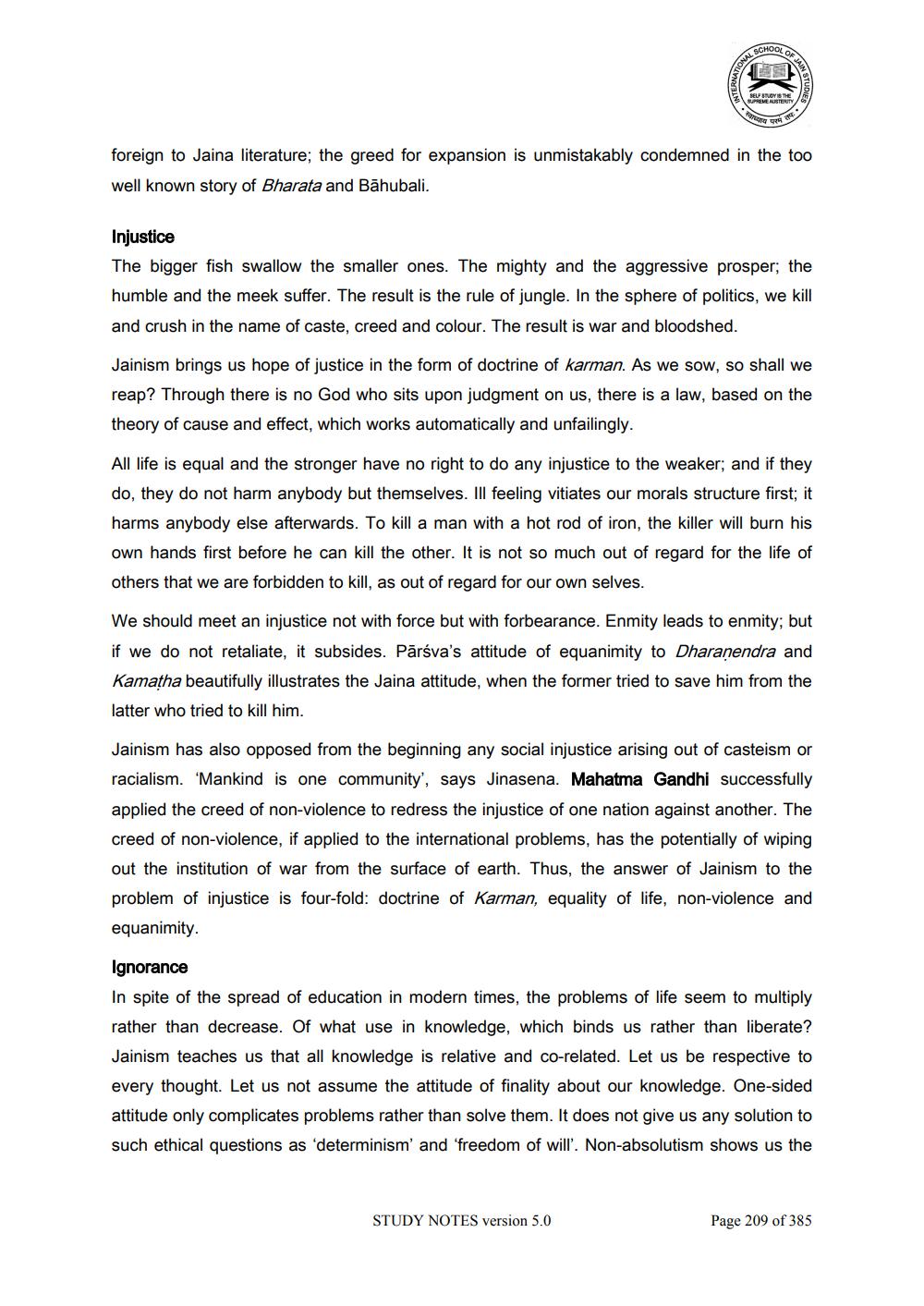________________
INTERNATIO
SCHOOL
OF
SELF STUDY IS THE SUPREME AUSTERITY
Farenga
ESTUDIES 46
foreign to Jaina literature; the greed for expansion is unmistakably condemned in the too
well known story of Bharata and Bahubali.
Injustice
The bigger fish swallow the smaller ones. The mighty and the aggressive prosper; the humble and the meek suffer. The result is the rule of jungle. In the sphere of politics, we kill and crush in the name of caste, creed and colour. The result is war and bloodshed.
STUDY NOTES version 5.0
Jainism brings us hope of justice in the form of doctrine of karman. As we sow, so shall we reap? Through there is no God who sits upon judgment on us, there is a law, based on the theory of cause and effect, which works automatically and unfailingly.
All life is equal and the stronger have no right to do any injustice to the weaker; and if they do, they do not harm anybody but themselves. Ill feeling vitiates our morals structure first; it harms anybody else afterwards. To kill a man with a hot rod of iron, the killer will burn his own hands first before he can kill the other. It is not so much out of regard for the life of others that we are forbidden to kill, as out of regard for our own selves.
We should meet an injustice not with force but with forbearance. Enmity leads to enmity; but if we do not retaliate, it subsides. Pārsva's attitude of equanimity to Dharanendra and Kamatha beautifully illustrates the Jaina attitude, when the former tried to save him from the latter who tried to kill him.
Jainism has also opposed from the beginning any social injustice arising out of casteism or racialism. 'Mankind is one community', says Jinasena. Mahatma Gandhi successfully applied the creed of non-violence to redress the injustice of one nation against another. The creed of non-violence, if applied to the international problems, has the potentially of wiping out the institution of war from the surface of earth. Thus, the answer of Jainism to the problem of injustice is four-fold: doctrine of Karman, equality of life, non-violence and equanimity.
Ignorance
In spite of the spread of education in modern times, the problems of life seem to multiply rather than decrease. Of what use in knowledge, which binds us rather than liberate? Jainism teaches us that all knowledge is relative and co-related. Let us be respective to every thought. Let us not assume the attitude of finality about our knowledge. One-sided attitude only complicates problems rather than solve them. It does not give us any solution to such ethical questions as 'determinism' and 'freedom of will'. Non-absolutism shows us the
Page 209 of 385




